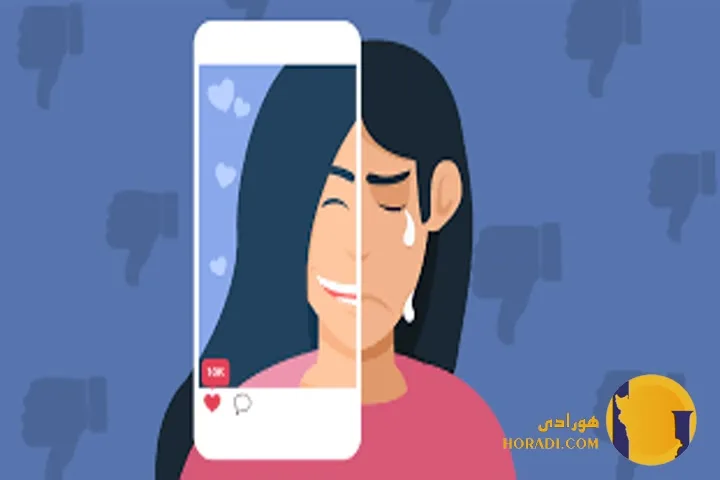
Social Media and Mental Health The Truth
Social media has become a constant presence in modern life, shaping how we communicate, connect, and perceive ourselves, while raising profound questions about its impact on mental health. Social Media and Mental Health The Truth
Introduction The Power and Pressure of Social Media
In less than two decades, social media platforms have transformed from niche networks into global ecosystems that influence billions of lives. They connect friends across continents, provide a stage for creativity, amplify political movements, and even shape cultural norms. Yet, beneath the positive potential lies a growing concern the impact of social media on mental health. From Instagram scrolling to TikTok trends, these platforms are more than tools — they are psychological environments that shape identity, behavior, and emotional well-being.
While many celebrate social media for its ability to empower marginalized voices, create communities, and spark opportunities, researchers and health experts caution about the dark side addiction, anxiety, depression, and the subtle erosion of self-worth. The truth about social media and mental health is complex, filled with both risks and benefits, and understanding this balance is crucial in 2025.
Social Media Use in Numbers
Social media usage is nearly universal among younger generations, but older demographics are also increasingly present. Over 4.8 billion people worldwide use at least one platform daily, with the average person spending more than 2.5 hours scrolling, liking, or posting each day. For many, platforms are not just entertainment; they are news sources, work tools, and primary channels for personal expression.
The scale of engagement raises questions if humans are spending a quarter of their waking hours immersed in these digital spaces, what is happening to the mind, the emotions, and the social fabric of life?
The Positive Side Benefits for Mental Health
It’s important to recognize that social media is not inherently harmful. In fact, it can support mental health in significant ways when used thoughtfully.
- Connection and Community Social platforms help people find communities of shared interests, from fitness groups to support networks for chronic illness or grief. This sense of belonging combats loneliness.
- Access to Resources Mental health awareness campaigns flourish on platforms, offering advice, helplines, and free tools that reach millions who might otherwise be isolated.
- Creativity and Expression Sharing art, music, or even personal reflections can provide a sense of purpose and identity validation.
- Breaking Stigma Discussions around depression, anxiety, ADHD, and therapy have become more normalized through influencers and advocates openly sharing experiences.
These positive outcomes show that social media can, under certain conditions, become a lifeline rather than a liability.
The Dark Side Negative Effects on Mental Health
Yet, for all the benefits, the risks are equally powerful. Social media is designed to capture attention, often in ways that exploit human psychology.
- Addiction Platforms rely on endless scrolling and notifications to hook users, creating compulsive habits that mirror other forms of addiction.
- Comparison Culture Seeing curated highlights of others’ lives fosters envy, inadequacy, and a distorted sense of reality.
- Cyberbullying Online harassment, trolling, and digital shaming can leave long-lasting emotional scars.
- Sleep Disruption Late-night scrolling interferes with rest, worsening anxiety and depression.
- Validation Dependency Relying on likes and shares for self-esteem can lead to fragile mental health.
These outcomes highlight the fragile balance between empowerment and exploitation inherent in social media use.
Anxiety and Depression Linked to Social Media
Numerous studies now link heavy social media usage with higher rates of anxiety and depression. The mechanisms are clear endless exposure to negative news, unrealistic beauty standards, and online conflicts create psychological strain. For younger users, the challenge is especially acute. Adolescents often tie their identity to digital approval, making them more vulnerable to rejection and self-doubt.
Moreover, constant alerts and the pressure to stay “always online” induce stress and fatigue. The digital world rarely pauses, meaning users rarely do either.
Social Media and Body Image Issues
Perhaps one of the most studied consequences is the effect of platforms like Instagram and TikTok on body image. Influencers, filters, and editing tools promote impossible standards of beauty. For teenagers, especially young women, this pressure can lead to disordered eating, low self-esteem, and long-term struggles with self-acceptance.
Even adults are not immune. The rise of cosmetic procedures often coincides with trends fueled by online ideals. The concept of “Snapchat dysmorphia” — wanting to look like one’s filtered selfies — reflects how deeply social media alters perception.
The Role of Algorithms
At the heart of the issue are algorithms. These invisible engines determine what users see, shaping mood and mindset. If a person engages with negative or stressful content, the algorithm may feed them more of the same, creating cycles of anxiety. Conversely, exposure to uplifting or educational content can have the opposite effect.
This raises ethical questions should companies prioritize mental health over engagement metrics? Many argue that the current system incentivizes conflict and sensationalism because outrage keeps people scrolling.
Social Media and Relationships
Beyond individual psychology, social media reshapes relationships. Couples navigate issues like jealousy sparked by online interactions. Friendships sometimes thrive through constant connection, but they can also erode when replaced by shallow digital engagement.
Family dynamics also shift. Parents worry about children’s exposure, while older adults sometimes feel alienated by rapid digital change. Social media has made the world smaller, but not always closer.
Can Social Media Cause Loneliness?
Paradoxically, platforms built for connection can amplify loneliness. When online interactions replace face-to-face contact, people may feel isolated. The “illusion of connection” — having hundreds of followers but few genuine friends — is a common phenomenon.
The loneliness epidemic in modern societies has roots in many areas, but digital culture plays a significant role. Social media can either alleviate or deepen feelings of disconnection, depending on how it’s used.
How to Protect Mental Health Online
Understanding risks is only the first step. Protecting mental health requires conscious action
- Limit Screen Time Setting boundaries reduces overexposure and fatigue.
- Curate Feeds Following accounts that uplift, inspire, or educate can shift experiences toward positivity.
- Digital Detoxes Short breaks help reset perspective.
- Seek Real Connection Prioritizing in-person relationships builds deeper bonds.
- Professional Help Therapists increasingly address social media-related stress as part of treatment.
These strategies empower users to regain control rather than being controlled by platforms.
Social Media and the Future of Mental Health
Looking ahead, the relationship between mental health and social media will evolve. Artificial intelligence, virtual reality, and augmented reality will create even more immersive digital spaces. With these advances come new challenges blurred lines between real and virtual life, deeper forms of escapism, and intensified risks of addiction.
However, future innovations may also include better safeguards, such as built-in mental health check-ins, AI-driven moderation, and ethical redesigns. Governments and organizations are beginning to pressure tech companies toward more accountability.
Social Media and Mental Health The Truth
Ultimately, the truth about social media and mental health is not black or white. These platforms can empower or harm, connect or isolate, depending on how they are used. The responsibility is shared tech companies must design responsibly, educators and parents must guide wisely, and individuals must practice self-awareness.
Social media is not going away. Instead, it is becoming even more integrated into human life. Acknowledging both the benefits and risks is essential to shaping a healthier digital culture in the years ahead.









































